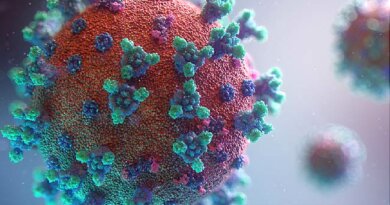Omicron Subvariant Hasn’t Caused a Surge of Cases
April 6, 2022
The Omicron subvariant BA.2 is causing the lion’s share of COVID infections in the United States now, but so far it hasn’t resulted in a surge of cases.
BA.2 accounted for 72% of cases last week, according to the Centers for Disease Control and Prevention, while the overall number of cases has continued to fall. The seven-day daily average of COVID cases was around 25,000 on Tuesday, compared to around 44,000 on March 4 and around 312,000 on Feb. 4, the CDC says.
Some health experts say there may not be a surge from BA.2.
“I would not be hugely concerned about BA.2,” Christopher Murray, MD, a professor of health metrics sciences at the University of Washington and the director of the Institute for Health Metrics and Evaluation, told NBC News.
“Right now, we’re in this period where immunity is high and we’re heading into the summer and transmission tends to be a bit lower,” he said. “The combination should lead in the Northern Hemisphere to pretty low levels after the BA.2 wave.”
Case counts jumped when the Delta and Omicron variants appeared, but that’s not happening with BA.2, Jessica Justman, MD, an epidemiologist at Columbia University’s Mailman School of Public Health, told CNN.
“This is a clear example of how these two trends are not necessarily tied together,” she said.
When documented COVID infections went up last month in Europe and other parts of the world because of BA.2, U.S. health experts worried the same thing could happen here. So far, it hasn’t.
Andy Pekosz, director of the Center for Emerging Viruses and Infectious Diseases at Johns Hopkins University, told CNN that the surge in European BA.2 cases occurred because those nations dropped many safety precautions when a lot of viruses were still circulating.
“What you’re seeing in Europe may be resulting from the fact that they lifted their restrictions early, not so much that it’s BA.2 that’s there,” he says.
CNN noted that it’s difficult to obtain accurate case counts now because so many people are using home testing kits and not reporting positive results to health departments.
“I think there’s no question there’s underreporting of positive cases,” Mara Aspinall, a professor at Arizona State University, told CNN.
Murray said he’s worried more about a possible COVID surge in the fall, when immunity provided by boosters declines and leaves people vulnerable, perhaps to a brand new subvariant.




